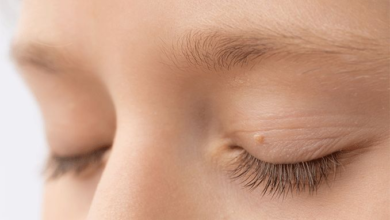7 Best Ways mHealth Apps are Revolutionizing Patient Engagement

The mobile app development journey has advanced excitingly and compellingly over the last few years. And the evolving healthcare landscape today embeds mobile applications and advanced technologies as integral components of the patient-healthcare provider relationship. Apart from transparency, personalization, and high-quality care, patients today need more and better control over their day-to-day health activities and fast access to the correct medical information.
Hence, mHealth is the most suitable tool to accomplish all these needs and requirements. This is why the global mHealth app market will be valued at around USD 340.5 billion by 2030. These apps focus on substituting medical devices and healthcare professionals and transforming the healthcare system. The rising popularity of digital health development helps increase clinical engagement and improve patient healthcare services.
Understanding the importance of mobile apps in healthcare is crucial. In this article, you’ll learn more about healthcare mobile apps and their importance in enhancing patient engagement.
Let’s go!
What are Mobile Healthcare Apps?
Mobile healthcare apps, popularly called mHealth apps, allow public health and medical practices with creative and advanced methods that help deliver optimum healthcare services outside the conventional care environments. Furthermore, these apps are a potential resource to enhance patient health outcomes and improve the health care professionals’ efficiency. mHealth apps help you accumulate and monitor all the clinical data and community details of the patients compiled in real time by healthcare service providers.
Medical institutions and healthcare providers worldwide are increasingly adopting mHealth applications to provide patients with better medical access and care.
Best Types of mHealth Apps for Patient Engagement
Multiple types of mHealth apps are available in the market, particularly hospital administration, wellness, pregnancy, and many more. However, I’ve listed the most common mHealth apps here.
- Drug reference apps
- Disease management and diagnostics apps
- Telemedicine apps
- Clinical communication apps
- Wellness and fitness apps
- Tracking apps
- Charge capture tools
- Outpatient apps
- Medication management tools
- Physician referral apps
- Mental health apps
- General hospital apps
- Urgent care apps
How Mobile Apps Enhance Patient Engagement?
Mobile healthcare apps, or mHealth apps, are transforming how users today can access medical services, allowing them to consult doctors virtually, retrieve health information, and book appointments. Developing healthcare applications encourages individuals to care for their well-being actively and helps healthcare institutions enhance patient engagement. So, let’s now look at how these apps do so:
Real-Time Response
These mobile apps allow healthcare professionals to respond pre-emptively to patients’ medical requirements, providing efficient treatment anytime and from anywhere. With the help of these apps, patients can request support and consult the available doctors immediately.
Emergency Services Integration
Today, mHealth apps integrate emergency services, enabling patients to call for help in critical conditions, access emergency contacts quickly, or share locations, therefore enhancing your patient’s well-being and safety.
Tailored Treatments for Patients
Building tailored mobile applications allows medical practitioners and professionals to examine every patient’s specific medical history, simplifying the process of customizing treatments. This is helpful when dealing with massive patient volumes, as it allows healthcare professionals to navigate patient records effectively.
Patients Can Manage Their Health
Another reason why patients should utilize mHealth applications is that they are independent in making their own decisions. When patients have easy and full access to their health information, they can take care of their well-being, book appointments, consult doctors, boosting patient engagement in hospitals. It also helps patients make decisions considering their financial situations and other limitations.
Offers Better Transparency
One of the significant advantages of mobile apps is the transparency between patients and healthcare providers. Also, with the help of features like EMR, patients can get better clarity about their health data. Also, hospitals receive time-to-time information about their patients’ health with the help of wearables. Healthcare professionals can acquire essential patient data through the wearables and make vital decisions.
Eliminates Emotional Gap
The relationship between the healthcare professional and the patient isn’t just about medical treatment. Emotional intelligence and empathy help improve and enhance the patient-doctor relationship. The mHealth apps enable patients to connect with their treatment experts well and share their stress and other fears. Additionally, patients can use the chatbot-like features in their app to get assistance from hospitals anytime and from anywhere. So, when patients and healthcare professionals connect emotionally, patients’ trust level rises, eventually increasing their engagement.
Telehealth
Most mobile healthcare apps today come with secure messaging platforms that allow patients to communicate with their doctors discussing or seeking advice on their health concerns conveniently and privately. Telehealth services incorporated into mobile applications enable patients to have digital consultations, making healthcare accessible in underserved or remote areas.
Must-Have Healthcare App Features to Increase Patient Engagement
Following are the features you can consider when developing mHealth apps for increasing patient engagement:
- User-friendly Design
- Gamification
- Medication and General Reminders
- Personalized Health Tips
- Integration with the Users Ecosystem
- e-Prescription
- Pill Reminder
- One-click Ambulance
- Schedule Management
- Hospital Wayfinding Map
- Patient’s Dashboard
- Clinical Photo Capture
- Decision Support Systems
- EMR/EHR
Summing Up!
Mobile health apps are revolutionizing the healthcare landscape with the help of simplified clinical operations and personalized healthcare experiences, leading to amplified patient engagement. They act as bridges between healthcare professionals and patients, providing immediate access to personal health data and different health services.
Yes, specific challenges come with these apps, like user adoption rates and data security. However, the enormous potential of mHealth apps in optimizing healthcare outcomes and patient contentment is indisputable.
So, when thinking about the innovation and optimization of these digital tools, it’s best to take a step towards a better future and accomplish the goal – patient-centered healthcare – with mobile healthcare apps. Let’s embrace this healthcare revolution altogether!



